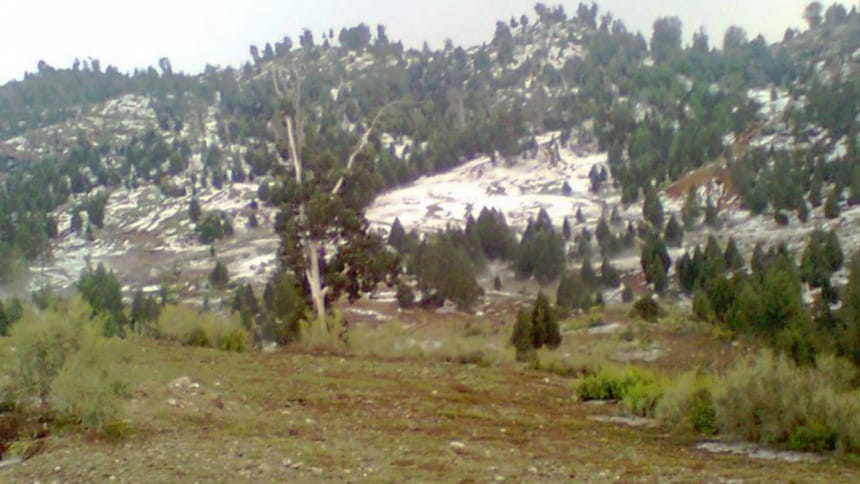10 militants killed in Pakistan air strikes: Officials

Air strikes killed at least 10 suspected militants in Pakistan's northwestern Shawal Valley on Sunday, intelligence officials said, more than a month after security forces moved in on Pakistani Taliban strongholds in the region.
The deeply forested ravines are a key smuggling route between Pakistan and neighbouring Afghanistan, and are dotted with Taliban bases used as launch pads for attacks on Pakistani forces.
Two intelligence officials, who declined to be identified, as they are not authorised to speak on the record, said the latest air strikes killed the militants in the Zoinari area of North Waziristan.
"We got information that local and foreign fighters were hiding in this area," said one of the officials. "Strikes were launched and 10 militants were killed. Three hideouts were also completely destroyed."
The hard-line Islamist Taliban's Pakistani wing used to control all of North Waziristan, a mountainous region that includes the Shawal Valley and runs along the Afghan border. But the Pakistani military has recaptured most of it, in an operation launched last June.
NATO forces had long urged Pakistan for such an offensive, saying Taliban safe havens in Pakistan were being used to attack NATO and Afghan forces in Afghanistan.
Since last month, the military has stepped up operations in Shawal Valley, where the Taliban still operates freely.
The area is a stronghold of Khan "Sajna" Said, a leader of a Taliban faction whose name was added to a sanctions list of "specially designated global terrorists" by US authorities last year.
Most phone lines to the area have been cut and military roadblocks curtail civilian movement.
The Pakistani Taliban mainly fight against the government in Islamabad and are separate from, but allied with, the Afghan Taliban that ruled Afghanistan in the late 1990s before being expelled in a US-led intervention.
Both groups send fighters against Afghanistan's Western-backed government. Afghan officials have said the Pakistani army offensive has driven large numbers of fighters over the border, complicating the war in Afghanistan's east and north.

 For all latest news, follow The Daily Star's Google News channel.
For all latest news, follow The Daily Star's Google News channel. 



Comments